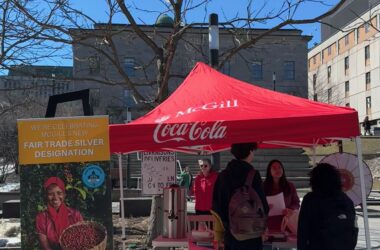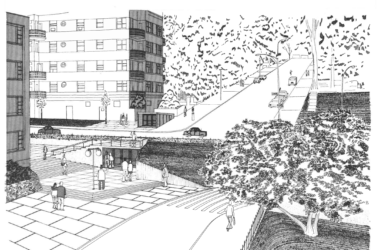For many McGill first years, starting university can be quite a daunting experience—especially when you have little or no peers to turn to for advice and support. To assist with this dilemma, the McGill Student Accessibility and Achievement office (SAA) re-launched its McGill Peer Mentor program this January. The program’s goal is to facilitate access to learning and support for all students throughout their university careers. It is devoted to creating an inclusive, supportive, and transparent environment where students can receive advice based on their needs.
Areas the program can help with include, but are not limited to: Identifying and working towards academic and school-oriented short-term and long-term goals, transitioning to university, developing networks and skillsets, achieving academic goals with learning strategies, managing stress, and learning about resources available around campus. The program is spearheaded by learning support specialists Jacqueline Biddle and Julia Adams-Whitaker and six paid Mentor Peer Leaders who aim to reduce the connection gap between mentors and mentees.
“The importance of this mentor program is to get the mentors and mentees to know each other,” Biddle said in an interview with The McGill Tribune. “McGill is a big campus, and often finding the right support is difficult. People can find it daunting to connect and have a start on their new journey away from home.”
Prior to COVID-19 lockdowns, when the program was moved online, most students were unaware of its existence on the Student Accessibility and Achievement website. Nevertheless, Biddle and her team are working hard to make the program more mainstream by trying out new approaches.
“We figured out the program’s importance and realized it through COVID-19. First-year students required immense support during these tough times, and a tailored relationship achieved through this program is ideal for that,” Biddle said. “Not only in terms of having a semester-long relationship, but incoming students can also navigate and be involved in social activities and know wellness and academic resources to succeed in McGill.”
Mentors and mentees meet on a weekly basis (either virtually or in person), but mentees can also contact their mentors based on their needs. This schedule has been helpful for Dayley Wood, a U2 Science student, who enrolled as a mentee for the winter semester.
“At first I heard about the mentor program from the Office of Student Accessibility and Achievement through a workshop. So, I decided to give it a try,” Wood said in an interview with the Tribune. “I recently met with my mentor and my experience so far has been very pleasant. I am able to receive a lot of advice and guidance from my mentor on how to effectively study during midterms and final exams since that was a major problem that I had.”
Despite her positive experience with the program, Wood thinks that it would be helpful to have more mentors from diverse programs.
“I think if mentors are matched with mentees who are in the same faculty and department, then it’s very beneficial for both since [they] may have undergone very similar problems before,” Wood said. “This could also be a great way to spread the word on this program since a mentee could mention it to their friends and they could tell other people and so on.”
Anyone who wants to become a mentee can go to the learner support program tab and apply there. Each mentee is paired with a mentor (who has to have been a McGill student for at least one year) based on an array of compatibilities such as their discussions with an SAA Advisor, their academic backgrounds, their extracurricular interests, and their needs for specific resources, such as exam support. The mentee application form gives each mentee a chance to share what they want to work on most.
“Whether we want to admit it or not, we experience life differently,” Biddle said. “We have faced challenges in connecting mentors and mentees. However, we had tremendous success due to the shift in on-campus classes for students and more spreading of the word. Therefore, we were very busy pairing up new mentors and mentees, and we expect a similar reaction in the winter semester.”









